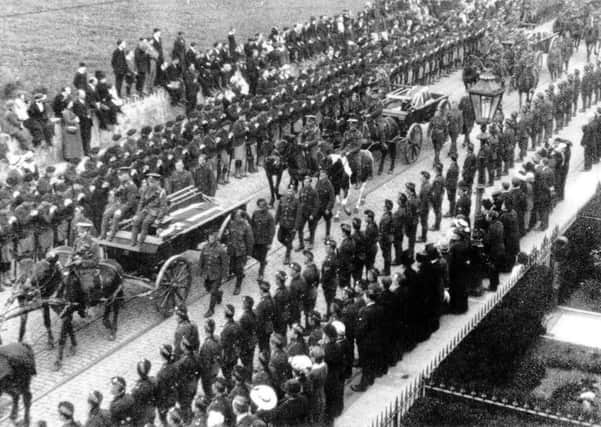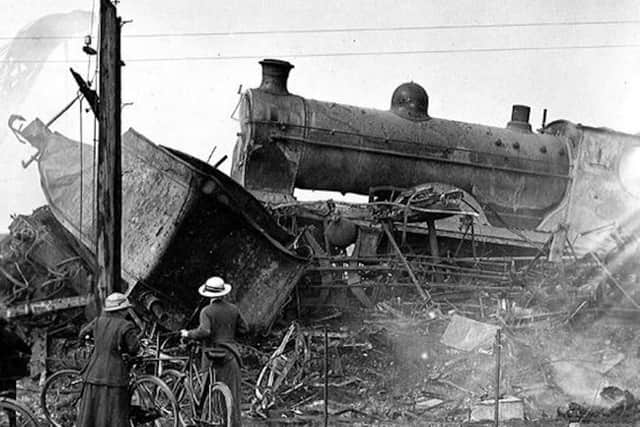Falkirk Provost will stand alone to remember Quintinshill rail victims


The word ‘heartbreaking’ often comes to mind when we recall the terrible stories of the first World War when tens of thousands of young men, most in their teens and early twenties, were plucked from their homes and plunged into the hell of trench warfare.
There they fought and died in unspeakable conditions while at home their families lived with the constant fear of devastating loss.
Advertisement
Hide AdAdvertisement
Hide AdIt seems impossible that we could find an event that brings a new level of meaning to heartbreaking.


And yet there were many that for sheer horror come into that category.
One such will be the subject of a special annual event in Larbert today (Friday) when Provost Billy Buchanan, on his own this time, will fulfill his promise to never forget the soldiers who died in the Quintinshill rail disaster.
The story with its tragic end began in April of 1915 when a large contingent of Royal Scots soldiers – the 7th and 4th recruited mainly in Leith – began arriving in Stenhousemuir to await instructions that would take them off to the front.
Advertisement
Hide AdAdvertisement
Hide AdThey set up a training camp next to the Tryst Golf Course and for the next few weeks became a familiar sight in and around Larbert and Falkirk, popular with the locals who were anxious to make the young men welcome during their short time in the area.
Among their number was one local lad, 17 year old James Robertson from Carronshore, who brought his new comrades to visit his family. The orders for the 7th Battalion came on May 21 and the next day they marched to Larbert Station to catch a special troop train that would carry them to Liverpool where they would embark for Gallipoli.
The marchers were in good spirits and the local folk turned out to cheer the lads on their way.
The train which carried nearly 500 officers and men consisted of 15 wooden carriages lit by gas stored in bottles under the floors.
At the back were five additional carriages with equipment.
Advertisement
Hide AdAdvertisement
Hide AdThe train left Larbert at 3.42am and three hours later reached Quintinshill near Gretna on the Scottish border.
The calamitous mix up that caused another train to be on the same track does not concern us here but it was, and remains, a matter of dispute.
Suffice to say that the troop train travelling at 70 mph slammed into a local train causing massive damage and spreading debris across the north line.
To compound the catastrophe, a minute later an express from London smashed into the wreckage.
Advertisement
Hide AdAdvertisement
Hide AdAll hell broke loose as a ferocious fire swept through the carriages in which the soldiers were trapped.
When the carnage ended 214 men were dead and over 200 seriously injured. Young James Robertson was among the dead.
It is impossible to imagine the suffering of the trapped men in the inferno that remains Britain’s worst ever train disaster.
The lost men were honoured as if they had died in Flanders or Gallipoli where they had intended to face the enemy.
Advertisement
Hide AdAdvertisement
Hide AdThe streets of Leith were lined with 3000 people as the funeral cortege made its way to Rosebank Cemetery and Scotland continues to honour them today.
Several years ago, Billy Buchanan began a campaign to have the local connection remembered and the special plaque at Larbert station was the result.
Each year it has been the focus of a service of remembrance and now, as Provost of Falkirk, and despite the current situation, Billy will lay a wreath on behalf of all the people of the district.
The fallen soldiers who were with us here for just a short time will be remembered as we promised.
Comment Guidelines
National World encourages reader discussion on our stories. User feedback, insights and back-and-forth exchanges add a rich layer of context to reporting. Please review our Community Guidelines before commenting.